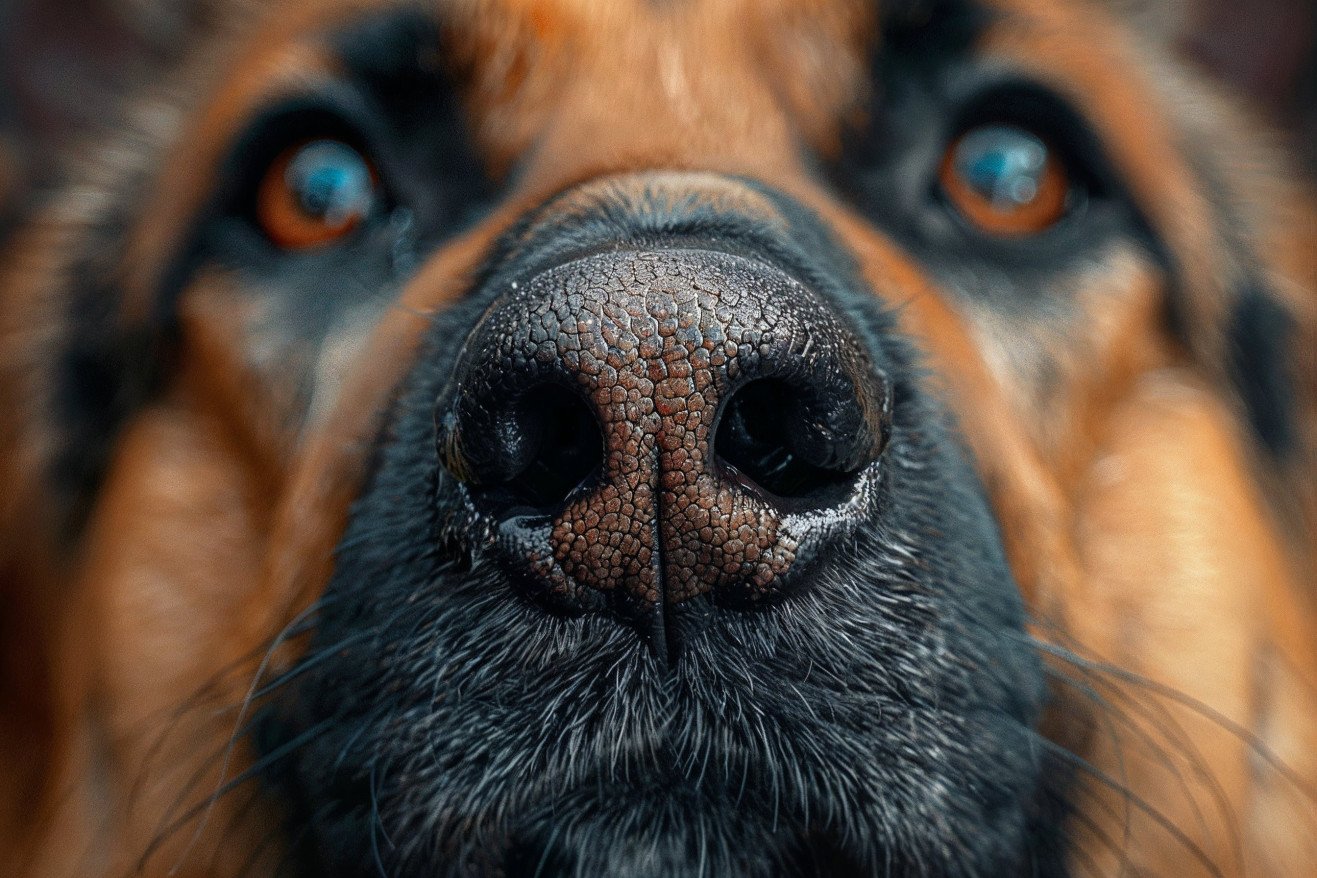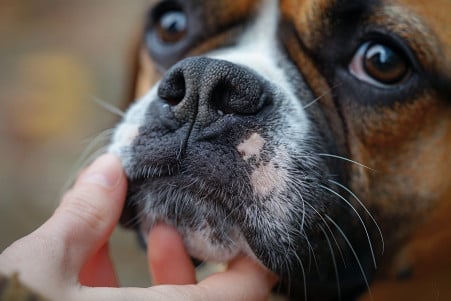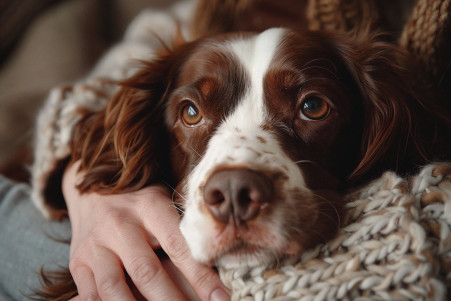What It Means If Your Dog's Nose Is Cold: Understanding the Causes and Importance of a Moist Nose
26 May 2024 • Updated 25 May 2024

If you find yourself frequently feeling your dog's nose to see if it's cold and wet, you may be wondering what that means for your dog's health. After all, a cold, wet nose is one of the most common characteristics of dogs and is often associated with good health. This is because a dog's nose has a specialized network of nasal glands and mucus that helps regulate body temperature and supports their sense of smell by keeping the nose moist.
That said, there are many things that can impact the temperature and moisture of a dog's nose, from the weather to health issues. This article will explore research from a variety of scientific fields that has looked at the physiology and function of the dog's nose to help you understand what a cold, wet nose really means for your pet.
What does it mean if your dog's nose is cold?
What Causes a Warm, Dry Dog Nose?
A warm, dry dog nose may not be a sign of a health problem and can be caused by a number of things. According to Purina, normal daily fluctuations, dehydration after exercise, warm temperatures, and even aging can cause a dog to have a dry nose for a short period of time. Environmental factors like warm weather or low humidity can also cause a dog's nose to dry out, since the Hudson Veterinary Hospital says the nose is a dog's primary way of cooling down.
Dehydration, sleep, and sunburn can also cause a dog's nose to dry out temporarily, according to MetLife Pet Insurance. However, a warm, dry nose can also be caused by more serious issues like a fever due to an infection, autoimmune diseases such as lupus or pemphigus, or other medical problems, says Business Insider.
While a dry nose by itself may not be a cause for concern, it's important to keep an eye on a dog's general well-being if their nose is dry, warm, or if other symptoms like tiredness or a lack of appetite are present. As the sources note, a consistently abnormal nose may be a sign of a medical issue that needs to be diagnosed and treated by a vet. By knowing the many potential causes, pet owners can make sure they're taking the best care of their dogs.
Why a Dog's Nose Should Be Cold and Wet
A cold, wet nose is a sign of good health in dogs and has a few important purposes. According to Bil-Jac, the wetness of a dog's nose helps trap scent molecules, which helps dogs with their incredible sense of smell. Dogs also lick their noses to keep them moist and to transfer scents to their Jacobson's organ, which is a scent-processing part of their mouth, according to Rover.com.
A cold nose may also help dogs regulate their body temperature and detect weak heat signatures, which would be helpful when hunting, according to a Live Science article. However, while it's normal for a dog's nose to change in temperature and wetness throughout the day, a sudden or consistent change could be a sign of an underlying health problem, according to Knose Pet Care.
When to Look for Other Symptoms
While a dog's dry nose that comes and goes is nothing to worry about, there are some symptoms that could be cause for concern. According to the Berthoud Animal Hospital, severe dehydration, which is often accompanied by other symptoms like tiredness, sunken eyes, and thick saliva, can cause a dry nose. A dry, cracked, or bleeding nose, especially when it's accompanied by other symptoms like a fever or nasal discharge, could be a sign of an underlying issue, according to the St. Francis Veterinary Hospital.
Autoimmune disorders, allergies, or sunburn can also cause a dog's nose to be dry, cracked, or discolored for an extended period, according to GetVetted.io and the Cornerstone Veterinary Hospital. If a dog's dry nose is accompanied by a change in behavior, appetite, or energy levels, it's important to see a vet for an accurate diagnosis and treatment, according to the American Kennel Club.
Knowing what other symptoms to look for can help dog owners make sure they're keeping a close eye on their pet's overall well-being and getting them to the vet if they notice anything concerning.
How to Tell If Your Dog's Nose Temperature Is Healthy
Heart + Paw states that a dog's normal body temperature is between 101°F and 102.5°F (38.3°C to 39.1°C), while Boston Veterinary Clinic specifies that a dog is considered to have a fever when its temperature reaches 103°F (39.4°C) or higher. Although a warm, dry nose can indicate a fever, other symptoms are required to make an accurate diagnosis, according to Vetwest Veterinary Clinics.
In addition, the American Kennel Club explains that the normal temperature range for pregnant dogs and puppies is slightly lower than that of adult dogs. Meanwhile, Boston Veterinary Clinic recommends using a canine thermometer to take a dog's temperature rectally for the most accurate results.
Knowing the healthy temperature range for a dog's nose and body can help pet parents stay on top of their dog's well-being and ensure they get the veterinary care they need if they develop a fever or other worrisome issues.
Conclusion: What to Know About Your Dog's Nose
While a cold, wet nose is generally a sign of good health in dogs, a dry nose alone is not necessarily a cause for concern. There are many things that can impact the temperature and moisture of a dog's nose, including environmental factors, dehydration, and medical conditions.
It's important to pay attention to your dog's overall health and behavior, as a consistently dry nose that's accompanied by other symptoms may be a sign of an underlying issue that needs to be addressed by a vet. Making sure your dog stays well-hydrated, protecting their nose from sunburn, and keeping it clean through regular grooming can help ensure your dog's nose stays healthy and moist.
By understanding what a dog's nose can and can't tell you and what to look for in terms of concerning signs, you can help make sure that your pet is as healthy as possible.


